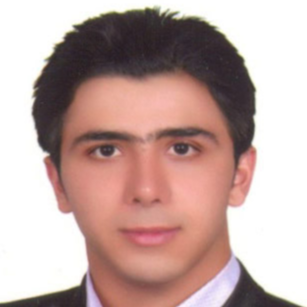International Journal of Information Technology and Computer Science (IJITCS)
IJITCS Vol. 8, No. 1, 8 Jan. 2016
Cover page and Table of Contents: PDF (size: 358KB)
An Efficient Distributed Power Control in Cognitive Radio Networks
Full Text (PDF, 358KB), PP.48-53
Views: 0 Downloads: 0
Author(s)
Index Terms
Cognitive Radio Network, Power Control, Interference, Throughput
Abstract
In cognitive radio networks, when primary users (PUs) do not use a shared frequency band, secondary users (SUs) are allowed to use that frequency band. However, when SU using frequency band and reclaiming PU also wants to use this band, there are two solutions: SU jumps to another existing spectrum band or stays in the same frequency band and changes its power so that interference in the reclaiming PUs does not exceed a threshold. Since the first solution interrupts the SUs' work, the second solution is more appropriate. Therefore, power control in cognitive networks is absolutely significant which should receive more attention. In the previous work (TPC-CBS) [2], TPC algorithm has been used for power control. The drawback of this algorithm is fixed target SIRs. In other words, while using this algorithm, all the users having enough sources or extra sources reach the same target SIR, which is not desirable. Therefore, in this paper, we are going to solve it by means of the proposed algorithm called "An Efficient Distributed Power Control Algorithm for Cognitive Networks (EDPC)". By the proposed algorithm, when a user has a bad channel, its SIR sets to the minimum target SIR and, when it has a good channel, its SIR will be more than the minimum value. Moreover, by means of fuzzy logic systems (FLS), the value of interference on reclaiming PU caused by SUs is checked in each iteration and power level of SUs is decreased if this value exceeds a threshold. Simulation results show that using our proposed algorithm not only allows SUs and PUs use frequency band simultaneously, but also enhances throughput significantly in comparison with the previous approaches (TPC-CBS).
Cite This Paper
Mohammad Hossein Faridi, Ali Jafari, Ensieh Dehghani, "An Efficient Distributed Power Control in Cognitive Radio Networks", International Journal of Information Technology and Computer Science(IJITCS), Vol.8, No.1, pp.48-53, 2016. DOI:10.5815/ijitcs.2016.01.06
Reference
[1]G. J. Foschini and Z. Miljanic, "A simple distributed autonomous power control algorithm and its convergence," Vehicular Technology, IEEE Transactions on, vol. 42, pp. 641-646, 1993.
[2]H.-S. Le and Q. Liang, "An efficient power control scheme for cognitive radios," in Wireless Communications and Networking Conference, 2007. WCNC 2007. IEEE, 2007, pp. 2559-2563.
[3]S. A. Grandhi, R. Vijayan, and D. Goodman, "Distributed power control in cellular radio systems," Communications, IEEE Transactions on, vol. 42, pp. 226-228, 1994.
[4]S. A. Grandhi and J. Zander, "Constrained power control in cellular radio systems," in Vehicular Technology Conference, 1994 IEEE 44th, 1994, pp. 824-828.
[5]M. Xiao, N. B. Shroff, and E. K. Chong, "A utility-based power-control scheme in wireless cellular systems," Networking, IEEE/ACM Transactions on, vol. 11, pp. 210-221, 2003.
[6]M. H. Faridi and M. Rasti, "Joint removal-based power control and base station assignment for cellular wireless network," in Telecommunications (IST), 2014 7th International Symposium on, 2014, pp. 1178-1183.
[7]M. Rasti, A. R. Sharafat, and J. Zander, "A distributed dynamic target-SIR-tracking power control algorithm for wireless cellular networks," Vehicular Technology, IEEE Transactions on, vol. 59, pp. 906-916, 2010.
[8]M. Rasti, A. R. Sharafat, and B. Seyfe, "Pareto-efficient and goal-driven power control in wireless networks: a game-theoretic approach with a novel pricing scheme," IEEE/ACM Transactions on Networking (TON), vol. 17, pp. 556-569, 2009.
[9]C. W. Sung and W. S. Wong, "A noncooperative power control game for multirate CDMA data networks," Wireless Communications, IEEE Transactions on, vol. 2, pp. 186-194, 2003.
[10]A. R. Fattahi and F. Paganini, "New economic perspectives for resource allocation in wireless networks," in Proceedings of the American Control Conference, 2005, p. 3960.
[11]T. Alpcan, T. Ba?ar, R. Srikant, and E. Altman, "CDMA uplink power control as a noncooperative game," Wireless Networks, vol. 8, pp. 659-670, 2002.
[12]C. U. Saraydar, N. B. Mandayam, and D. Goodman, "Efficient power control via pricing in wireless data networks," Communications, IEEE Transactions on, vol. 50, pp. 291-303, 2002.
[13]C. W. Sung and K.-K. Leung, "A generalized framework for distributed power control in wireless networks," Information Theory, IEEE Transactions on, vol. 51, pp. 2625-2635, 2005.
[14]F. Berggren and S.-L. Kim, "Energy-efficient control of rate and power in DS-CDMA systems," Wireless Communications, IEEE Transactions on, vol. 3, pp. 725-733, 2004.
[15]P. Hande, S. Rangan, M. Chiang, and X. Wu, "Distributed uplink power control for optimal SIR assignment in cellular data networks, " IEEE/ACM Trans. Netw., vol. 16, no. 6, pp. 1420–1433, Dec. 2008.
[16]K. Leung and C. W. Sung, “An opportunistic power control algorithm for cellular network,” IEEE/ACM Trans. Netw., vol. 14, no. 3, pp. 470–478, Jun. 2006.


